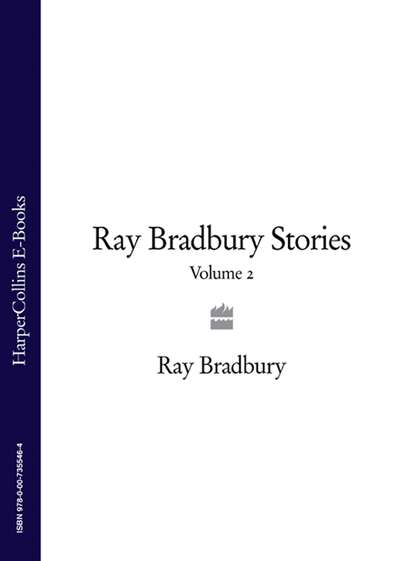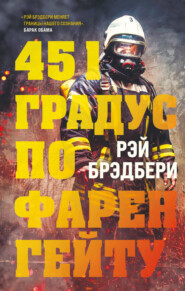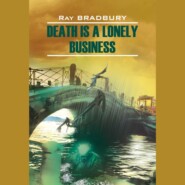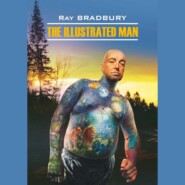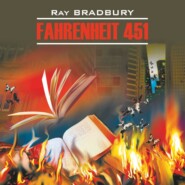По всем вопросам обращайтесь на: info@litportal.ru
(©) 2003-2024.
✖
Ray Bradbury Stories Volume 2
Настройки чтения
Размер шрифта
Высота строк
Поля
‘No,’ I lied, ‘let me see.’
He pulled a small photo from his wallet and tossed it across to me. I had seen it a hundred times but it was a wonder and a delight.
‘That’s me, in the middle left, the short guy with the dumb smile next to Rickenbacker.’ Bill reached to point.
I looked at all the dead men, for most were long dead now, and there was Bill, twenty years old and lark-happy, and all the other young, young, oh, dear God, young men lined up, arms around each other, or one arm down holding helmet and goggles, and behind them a French 7–1 biplane, and beyond, the flat airfield somewhere near the Western Front. Sounds of flying came out of the damned picture. They always did, when I held it. And sounds of wind and birds. It was like a miniature TV screen. At any moment I expected the Lafayette Escadrille to burst into action, spin, run, and take off into that absolutely clear and endless sky. At that very moment in time, in the photo, the Red Baron still lived in the clouds; he would be there forever now and never land, which was right and good, for we wanted him to stay there always, that’s how boys and men feel.
‘God, I love showing you things.’ Bill broke the spell. ‘You’re so damned appreciative. I wish I had had you around when I was making films at MGM.’
That was the other part of William (Bill) Westerleigh. From fighting and photographing the Western Front half a mile up, he had moved on, when he got back to the States. From the Eastman labs in New York, he had drifted to some flimsy film studios in Chicago, where Gloria Swanson had once starred, to Hollywood and MGM. From MGM he had shipped to Africa to camera-shoot lions and the Watusi for King Solomon’s Mines. Around the world’s studios, there was no one he didn’t know or who didn’t know him. He had been principal cameraman on some two hundred films, and there were two bright gold Academy Oscars on his mantel next door.
‘I’m sorry I grew up so long after you,’ I said. ‘Where’s that photo of you and Rickenbacker alone? And the one signed by von Richthofen.’
‘You don’t want to see them, buster.’
‘Like hell I don’t!’
He unfolded his wallet and gently held out the picture of the two of them, himself and Captain Eddie, and the single snap of von Richthofen in full uniform, and signed in ink below.
‘All gone,’ said Bill. ‘Most of ’em. Just one or two, and me left. And it won’t be long’ – he paused—‘before there’s not even me.’
And suddenly again, the tears began to come out of his eyes and roll down and off his nose.
I refilled his glass.
He drank it and said:
‘The thing is, I’m not afraid of dying. I’m just afraid of dying and going to hell!’
‘You’re not going there, Bill,’ I said.
‘Yes, I am!’ he cried out, almost indignantly, eyes blazing, tears streaming around his gulping mouth. ‘For what I did, what I can never be forgiven for!’
I waited a moment. ‘What was that, Bill?’ I asked quietly.
‘All those young boys I killed, all those young men I destroyed, all those beautiful people I murdered.’
‘You never did that, Bill,’ I said.
‘Yes! I did! In the sky, dammit, in the air over France, over Germany, so long ago, but Jesus, there they are every night now, alive again, flying, waving, yelling, laughing like boys, until I fire my guns between the propellers and their wings catch fire and spin down. Sometimes they wave to me, okay! as they fall. Sometimes they curse. But, Jesus, every night, every morning now, the last month, they never leave. Oh, those beautiful boys, those lovely young men, those fine faces, the great shining and loving eyes, and down they go. And I did it. And I’ll burn in hell for it!’
‘You will not, I repeat not, burn in hell,’ I said.
‘Give me another drink and shut up,’ said Bill. ‘What do you know about who burns and who doesn’t? Are you Catholic? No. Are you Baptist? Baptists burn more slowly. There. Thanks.’
I had filled his glass. He gave it a sip, the drink for his mouth meeting the stuff from his eyes.
‘William.’ I sat back and filled my own glass. ‘No one burns in hell for war. War’s that way.’
‘We’ll all burn,’ said Bill.
‘Bill, at this very moment, in Germany, there’s a man your age, bothered with the same dreams, crying in his beer, remembering too much.’
‘As well they should! They’ll burn, he’ll burn too, remembering my friends, the lovely boys who got themselves screwed into the ground when their propellers chewed the way. Don’t you see? They didn’t know. I didn’t know. No one told them, no one told us!’
‘What?’
‘What war was. Christ, we didn’t know it would come after us, find us, so late in time. We thought it was all over; that we had a way to forget, put it off, bury it. Our officers didn’t say. Maybe they just didn’t know. None of us did. No one guessed that one day, in old age, the graves would bust wide, and all those lovely faces come up, and the whole war with ’em! How could we guess that? How could we know? But now the time’s here, and the skies are full, and the ships just won’t come down, unless they burn. And the young men won’t stop waving at me at three in the morning unless I kill them all over again. Jesus Christ. It’s so terrible. It’s so sad. How do I save them? What do I do to go back and say, Christ, I’m sorry, it should never have happened, someone should have warned us when we were happy: war’s not just dying, it’s remembering and remembering late as well as soon. I wish them well. How do I say that, what’s the next move?’
‘There is no move,’ I said quietly. ‘Just sit here with a friend and have another drink. I can’t think of anything to do. I wish I could.…’
Bill fiddled with his glass, turning it round and round.
‘Let me tell you, then,’ he whispered. ‘Tonight, maybe tomorrow night’s the last time you’ll ever see me. Hear me out.’
He leaned forward, gazing up at the high ceiling and then out the window where storm clouds were being gathered by wind.
‘They’ve been landing in our backyards, the last few nights. You wouldn’t have heard. Parachutes make sounds like kites, soft kind of whispers. The parachutes come down on our back lawns. Other nights, the bodies, without parachutes. The good nights are the quiet ones when you just hear the silk and the threads on the clouds. The bad ones are when you hear a hundred and eighty pounds of aviator hit the grass. Then you can’t sleep. Last night, a dozen things hit the bushes near my bedroom window. I looked up in the clouds tonight and they were full of planes and smoke. Can you make them stop? Do you believe me?’
‘That’s the one thing; I do believe.’
He sighed, a deep sigh that released his soul.
‘Thank God! But what do I do next?’
‘Have you,’ I asked, ‘tried talking to them? I mean,’ I said, ‘have you asked for their forgiveness?’
‘Would they listen? Would they forgive? My God,’ he said. ‘Of course! Why not? Will you come with me? Your backyard. No trees for them to get strung up in. Christ, or on your porch.…’
‘The porch, I think.’
I opened the living room French doors and stepped out. It was a calm evening with only touches of wind motioning the trees and changing the clouds.
Bill was behind me, a bit unsteady on his feet, a hopeful grin, part panic, on his face.
I looked at the sky and the rising moon.
‘Nothing out here,’ I said.
‘Oh, Christ, yes, there is. Look,’ he said. ‘No, wait. Listen.’
I stood turning white cold, wondering why I waited, and listened.
‘Do we stand out in the middle of your garden, where they can see us? You don’t have to if you don’t want.’
‘Hell,’ I lied. ‘I’m not afraid.’ I lifted my glass. ‘To the Lafayette Escadrille?’ I said.
‘No, no!’ cried Bill, alarmed. ‘Not tonight. They mustn’t hear that. To them, Doug. Them.’ He motioned his glass at the sky where the clouds flew over in squadrons and the moon was a round, white, tombstone world.





